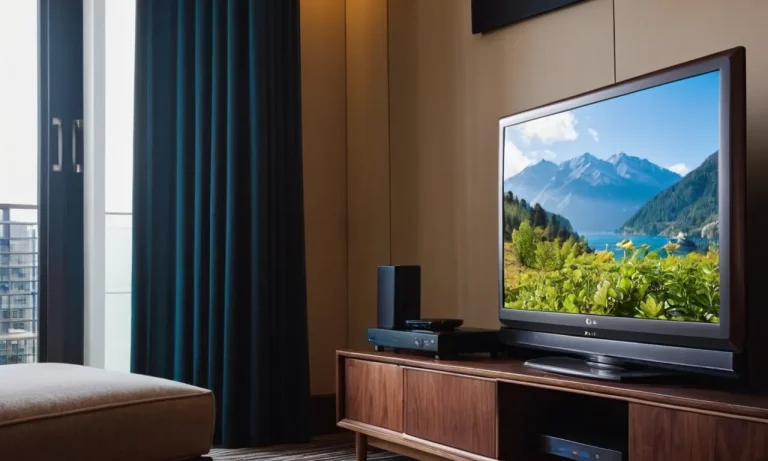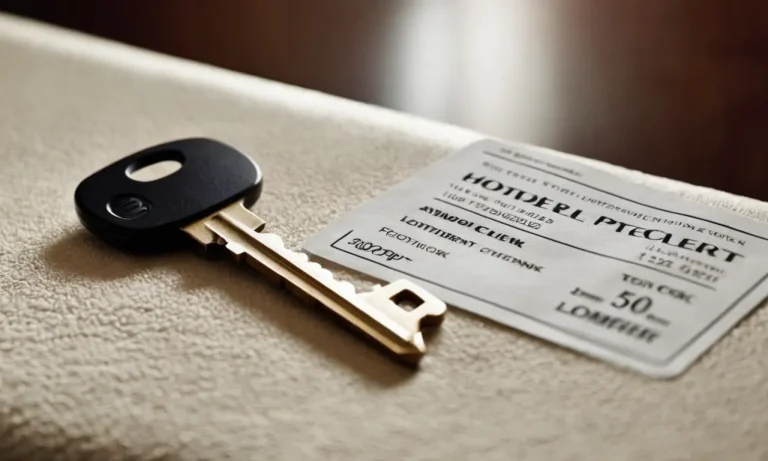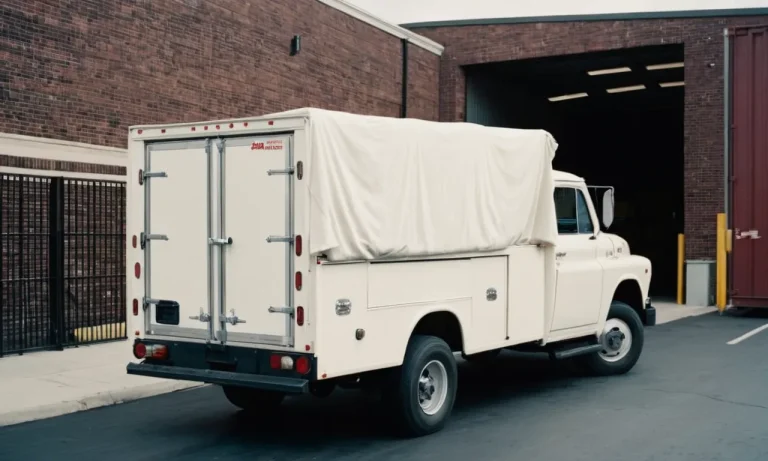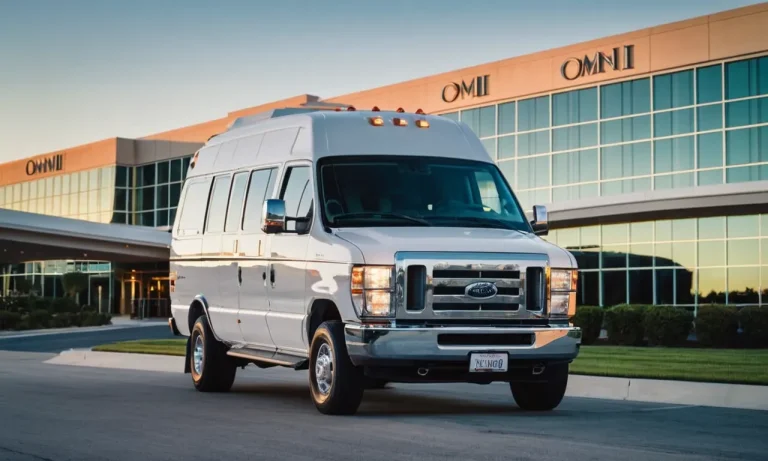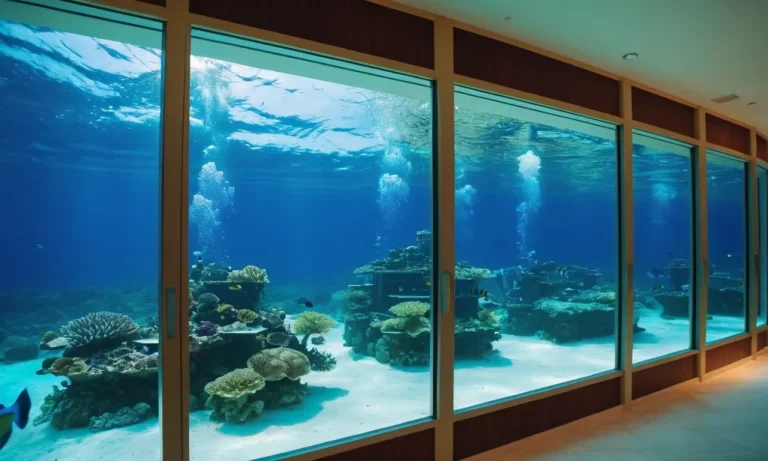Age Limit for Hotels: A Comprehensive Guide
Traveling is an exciting adventure, but it’s essential to be aware of the age requirements for hotels to ensure a smooth and hassle-free stay. Whether you’re planning a family vacation, a solo trip, or a getaway with friends, understanding the age limit for hotels can save you from potential complications and disappointments.
If you’re short on time, here’s a quick answer to your question: Most hotels in the United States and many other countries require guests to be at least 18 years old to check in and rent a room. However, age limits can vary depending on the hotel’s policies, location, and local laws.
In this comprehensive guide, we’ll delve into the details of age limits for hotels, exploring the reasons behind these policies, exceptions, and tips for navigating them successfully. We’ll also cover related topics such as parental consent requirements, age restrictions for amenities, and strategies for traveling with minors.
Why Do Hotels Have Age Limits?
Hotels across the globe implement age limits for various reasons, primarily revolving around legal considerations, liability and safety concerns, and preventing underage access to restricted areas. Understanding these factors is crucial for travelers and hoteliers alike.
Legal Considerations
One of the primary reasons hotels have age limits is to comply with local and national laws. Many jurisdictions have regulations that prohibit minors from checking into hotels without adult supervision or consent.
For instance, according to Hotel Online, in the United States, most states require guests to be at least 18 years old to book a hotel room without a guardian present. Failure to adhere to these laws can result in hefty fines and legal consequences for the hotel.
Liability and Safety Concerns
Hotels are responsible for ensuring the safety and well-being of their guests, and age limits help mitigate potential risks. Minors left unsupervised in a hotel room could be vulnerable to accidents, injuries, or other hazardous situations. According to a study by the American Hotel & Lodging Association, around 15% of hotel liability claims involve incidents related to minors staying without proper supervision. By enforcing age limits, hotels can reduce their liability exposure and maintain a secure environment for all guests.
Preventing Underage Access to Restricted Areas
Many hotels offer amenities and services that are restricted to adults only, such as casinos, nightclubs, or bars. Age limits help prevent minors from gaining unauthorized access to these areas, which could violate laws and regulations.
For example, according to Casinos Avenue, the legal gambling age in most states is 21. Hotels with on-site casinos must ensure that underage individuals do not enter or participate in gambling activities. 😊
In addition to these primary reasons, age limits can also help hotels maintain a certain level of decorum and atmosphere. Some hotels cater specifically to adult travelers or business clientele, and age limits allow them to curate the desired environment and experience for their target audience.
It’s worth noting that age limit policies can vary across different hotel chains, locations, and jurisdictions. Responsible travelers should always research and understand the specific age requirements of their destination and chosen accommodation.
By respecting these policies, guests can ensure a safe, enjoyable, and legally compliant stay. 👍
Common Age Limits for Hotels
Age Limit for Checking In and Renting a Room
The age limit for checking into and renting a hotel room varies depending on the hotel’s policies and local laws. In most cases, guests must be at least 18 years old to rent a room, though some hotels may require guests to be 21 or older.
This age requirement is typically in place because hotel contracts are legally binding agreements, and minors are not permitted to enter into such contracts.
However, there are exceptions to this rule. For example, according to Hotels.com, some hotel chains like Marriott and Hilton allow guests as young as 16 or 17 to check in and rent a room if they have a credit card and written permission from a parent or legal guardian.
It’s always a good idea to check the specific age policies of the hotel you plan to stay at before making a reservation.
Age Limit for Staying Alone in a Hotel Room
While the age limit for checking in and renting a room is usually 18 or older, the age limit for staying alone in a hotel room can be higher in some cases. Many hotels have policies that prohibit guests under a certain age, typically 18 or 21, from staying in a room without adult supervision.
This is a safety measure to prevent underage guests from engaging in risky or illegal activities.
According to SmarterTravel, some hotels may require guests under 18 to be accompanied by an adult or have written permission from a parent or guardian. Other hotels may have a strict policy that guests under 21 cannot stay alone, regardless of parental consent.
These policies can vary widely, so it’s essential to check with the specific hotel you plan to stay at.
Age Limit for Using Hotel Amenities
In addition to age limits for checking in and staying alone, many hotels also have age restrictions for using certain amenities and facilities. For example, hotel pools, hot tubs, and fitness centers often have age limits to ensure the safety of guests and comply with local regulations.
According to a survey by Travel + Leisure, the most common age limit for hotel pools is 16 years old, with some hotels allowing children as young as 12 or 14 with adult supervision. Fitness centers and spa facilities may have higher age limits, typically 18 or 21 years old, due to the use of equipment and services that may be unsuitable for minors.
It’s worth noting that these age limits can vary widely depending on the hotel’s policies, local laws, and the specific amenities offered. Some hotels may have more lenient or stricter rules, so it’s always a good idea to check with the hotel directly before your stay to ensure a smooth and enjoyable experience for all guests.
Exceptions and Special Circumstances
Parental Consent and Supervision
While most hotels have strict age policies in place, many make exceptions for minors accompanied by their parents or legal guardians. In such cases, the hotel may require written consent or proof of guardianship from the parents.
This allows families to enjoy their vacations together without any hassle. According to a survey by the American Hotel & Lodging Association, around 75% of hotels in the US permit minors to stay with their parents or guardians, regardless of their age.
It’s essential to note that parental supervision is typically required, and minors cannot be left unattended in hotel rooms. Some hotels may even have policies restricting the number of minors per room or requiring them to be of a certain age to share a room with their parents.
These measures are in place to ensure the safety and well-being of all guests.
Always check with the hotel in advance to understand their specific policies regarding minors and parental consent.
Military Personnel and Government Employees
Many hotels make exceptions for active-duty military personnel and government employees on official business. These individuals may be permitted to check into hotels at a younger age than the standard policy due to the nature of their work and the responsibilities they carry.
For instance, the Marriott International chain allows active military personnel under the age of 18 to check into their hotels without a parent or guardian present, provided they have valid military identification.
This policy recognizes the unique circumstances faced by those serving in the armed forces and facilitates their travel needs.
Similarly, government employees on official business trips may be granted exceptions to age policies. This could include law enforcement officers, federal agents, or diplomats traveling for work-related purposes.
Hotels understand the importance of accommodating these individuals and may have specific protocols in place to verify their credentials and allow them to check in.
Cultural and Regional Variations
Age policies for hotels can vary significantly across different cultures and regions. What is considered the legal age of adulthood in one country may differ from another, leading to variations in hotel policies.
For example, in some Asian countries like Japan and South Korea, the legal age of adulthood is 20, while in most Western countries, it’s 18.
When traveling internationally, it’s crucial to research the local laws and cultural norms regarding age limits for hotels. Some hotels may adjust their policies to align with the region’s standards, while others may maintain a consistent global policy.
It’s always advisable to contact the hotel directly and inquire about their specific age requirements for your destination.
Additionally, certain regions may have unique traditions or customs that influence hotel policies. For instance, in some Middle Eastern countries, it may be more common for hotels to require adult supervision or consent for minors, even if they are accompanied by family members.
Being aware of these cultural nuances can help travelers plan their trips accordingly and avoid any misunderstandings or complications.
Embracing cultural diversity and respecting local norms is essential when it comes to navigating age policies for hotels in different parts of the world.
Traveling with Minors: Tips and Strategies
Booking Accommodations for Families
When traveling with children, finding the right accommodation is crucial for a stress-free and enjoyable trip. Many hotels and resorts offer family-friendly amenities, such as interconnecting rooms, kids’ clubs, and special dining options.
However, it’s essential to research and book accommodations that cater specifically to families with minors. According to a survey by Travel and Leisure, 78% of parents prefer hotels with dedicated children’s facilities and activities.
Consider booking hotels that provide amenities like cribs, children’s menus, and childcare services. Additionally, look for hotels with spacious rooms or suites, as cramped quarters can quickly become overwhelming when traveling with little ones.
Don’t hesitate to contact the hotel directly and inquire about their age policies and any restrictions or additional fees for minors.
Obtaining Parental Consent Forms
If you’re traveling with minors who are not your children or without one parent present, it’s crucial to obtain proper documentation. Many hotels and airlines require parental consent forms or letters to ensure the safety and well-being of the minors.
These forms typically outline the travel details, including dates, destinations, and the adults responsible for the minors during the trip.
The requirements for parental consent forms can vary depending on the country or state you’re visiting, so it’s essential to research the specific regulations in advance. 😊 Additionally, some destinations may require additional documentation, such as birth certificates or custody agreements.
Failure to provide the necessary documentation can result in denied boarding or accommodation, so it’s better to be prepared and have everything in order.
Ensuring Safety and Supervision
When traveling with minors, their safety and supervision should be a top priority. Hotels often have policies and guidelines in place to ensure the well-being of their young guests. For example, many hotels require that minors under a certain age (usually 16 or 18) are accompanied by an adult at all times in public areas, such as pools, restaurants, and lobbies.
It’s also essential to establish clear rules and boundaries with your children or the minors in your care. This can include curfews, designated meeting spots, and emergency contact information. 👏 Additionally, consider purchasing travel insurance that covers medical emergencies and other unforeseen circumstances when traveling with minors.
By following these tips and strategies, you can ensure a smoother and more enjoyable travel experience when traveling with minors. Remember, preparation and open communication are key to creating lasting memories and keeping everyone safe and happy during your trip. 🎉
Age Verification and Identification Requirements
When it comes to booking a hotel, age plays a crucial role in determining eligibility. Most hotels have age requirements in place to ensure the safety and well-being of their guests, as well as to comply with local laws and regulations.
In this section, we’ll delve into the various age verification and identification requirements that hotels typically enforce.
Acceptable Forms of Identification
Hotels generally require guests to present a valid, government-issued photo ID upon check-in. Some of the most commonly accepted forms of identification include:
- Driver’s license
- Passport
- State or national ID card
- Military ID
It’s important to note that the specific requirements may vary depending on the hotel’s policies and the local jurisdiction. Additionally, some hotels may have stricter rules for guests under a certain age, such as requiring a parent or legal guardian to be present or provide written consent.
Online Check-In and Age Verification Processes
With the rise of online booking platforms, many hotels now offer the option to check-in and verify age online prior to arrival. This process typically involves uploading a copy of your ID or providing personal information that can be cross-referenced with government databases.
According to a survey by Hotel News Resource, over 60% of hotels now offer online check-in and age verification services to streamline the process and enhance guest convenience.
However, it’s important to exercise caution when providing personal information online. Reputable hotels and booking platforms employ robust security measures to protect guest data, but it’s always a good idea to verify the legitimacy of the website before sharing sensitive information.
Consequences of Providing False Information
Providing false or misleading information regarding your age or identity can have serious consequences. Hotels take age verification and identification requirements very seriously, and any attempt to circumvent these rules may result in the cancellation of your reservation or even legal action.
In some cases, guests may be asked to leave the premises immediately without a refund if it’s discovered that they provided false information.
Additionally, hotels often work closely with local authorities to ensure compliance with laws and regulations. Providing false information could potentially lead to fines or criminal charges, depending on the severity of the offense and the jurisdiction in which the hotel is located.
It’s always best to be upfront and honest about your age and identity when booking a hotel. Not only does this ensure a smooth and hassle-free experience, but it also helps maintain the trust and integrity of the hospitality industry as a whole.
Conclusion
Navigating age limits for hotels can be a crucial aspect of travel planning, especially when traveling with minors or in unfamiliar destinations. By understanding the reasons behind these policies, common age limits, exceptions, and strategies for traveling with minors, you can ensure a smooth and enjoyable hotel stay.
Remember to always carry proper identification, obtain necessary parental consent forms, and familiarize yourself with the specific age requirements of your chosen hotel or destination. With proper preparation and awareness, you can avoid potential complications and focus on creating lasting memories during your travels.



